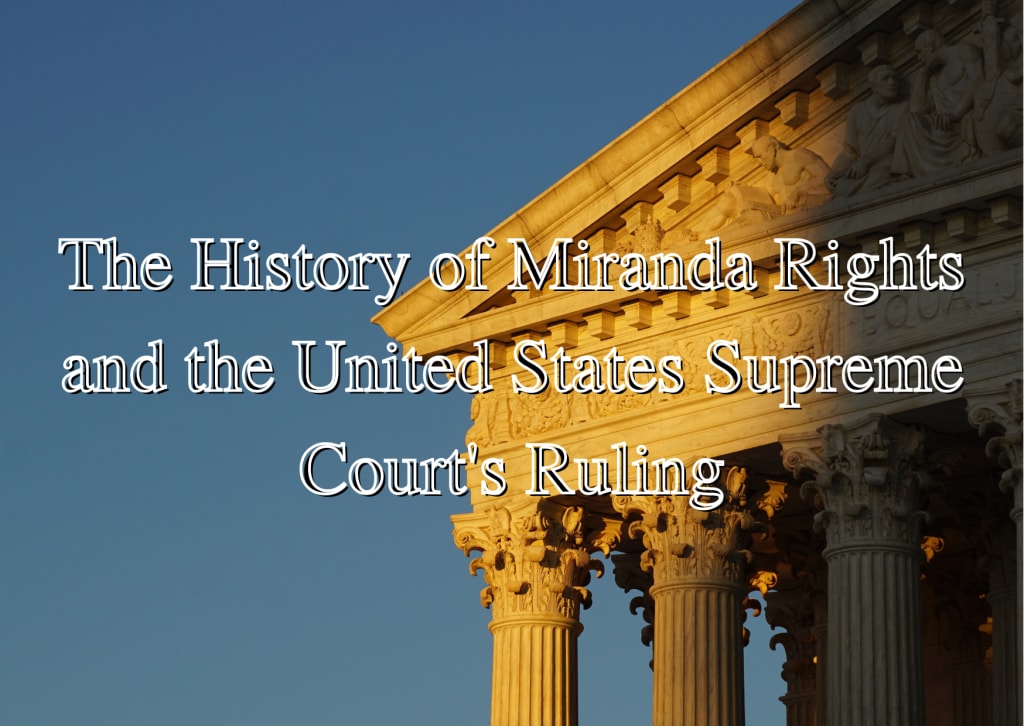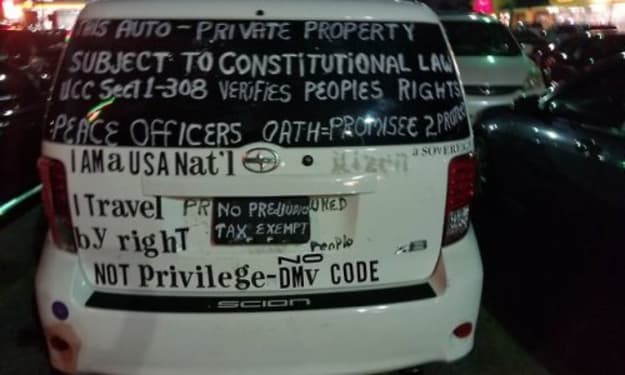The History of Miranda Rights and the United States Supreme Court's Ruling
In the case, Vega v. Tekoh, the court substantially retreated from the promise it made in Miranda.

In the case, Vega v. Tekoh, the court substantially retreated from the promise it made in Miranda. In the case of Vega, the Supreme Court decided by a vote of 6-3 (despite an excellent dissent by Justice Elena Kagan) that a person who is not given the Miranda warnings and whose compelled statements are introduced against them in a criminal trial is not permitted to sue the police officer who violated their rights, even in the event that a criminal jury finds them not guilty of any crime. This decision was made despite Kagan's excellent dissent.
On June 26, 2018, the United States Supreme Court ruled that police officers can't be sued for failing to advise suspects of their right to remain silent during an interrogation.
This landmark ruling affects not only individuals charged with crimes but also those subject to police questioning. In short, Miranda rights ensured that suspects had the right to know their rights and have an attorney present during questioning.
The ruling has far-reaching implications for both law enforcement and the criminal justice system as a whole.
The Supreme Court ruled in the civil case, Vega v. Tekoh, that suspects who do not receive a Miranda warning cannot sue an officer for damages.
This means suspects have no recourse if they are not reminded of rights protected by the Fifth Amendment, like the right to an attorney, and that they can't be forced to incriminate themselves.
Who is most at risk here if the police do not give this warning?
The young - so teenagers who we see most in many cases that come through the criminal justice system
It's also individuals who are intellectually disabled who are questioned by police in these interrogation settings.
This decision does not mean that officers will be compelled to tell suspects what their rights are in custody.
What did the Supreme Court rule in Miranda versus Arizona?
At trial, the oral and written confessions were presented to the jury. Miranda was found guilty of kidnapping and rape and was sentenced to 20-30 years imprisonment on each count. On appeal, the Supreme Court of Arizona held that Miranda's constitutional rights were not violated in obtaining the confession.
What happens if Miranda warnings are not given to someone who later faces a criminal trial?
Without a Miranda warning, what the arrestee says in response to custodial questioning can't be used as evidence at trial for most purposes. This rule—called the exclusionary rule—aims to deter police from questioning a suspect without informing them of their rights.
In Conclusion
While the decision in Vega v. Tekoh doesn’t reduce the obligation of police to issue Miranda warnings, it eliminates a critical avenue for justice.
Jerry Nelson is an American writer living the expat life in Buenos Aires. Some of the adventures Jerry has enjoyed, he jumped into the ocean from the flight deck of an aircraft carrier in the Gulf of Aden, cut off a goat's balls as part of a mating ritual in Indonesia, raced a NASCAR around the oval in Charlotte, created a small coin purse out of live Tarantulas in Australia's outback, spent six-weeks with the Sinaloa cartel along the U.S./Mexican border and sailed a 16th century schooner through the sound and into the open ocean.
Never far from his coffee and Marlboros, Jerry is always glad to discuss future working opportunities. Email him at [email protected] and join the quarter-million who follow him on Twitter.
About the Creator
Jerry Nelson
Jerry Nelson is an American writer living the expat life in Argentina and winner of the Revi 2021 Reader Award.





Comments
There are no comments for this story
Be the first to respond and start the conversation.